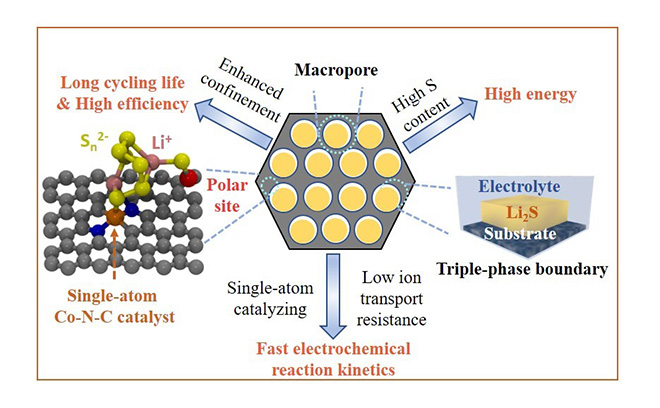A team led by Professor Zhao Tianshou of the Hong Kong University of Science and Technology has proposed a novel cathode design concept for lithium-sulfur (Li-S) batteries.
Li-S batteries are regarded as attractive alternatives to Li-ion batteries. They are known for their high energy density, while their major component, sulfur, is abundant, light, cheap and environmentally benign.
Li-S batteries can potentially offer an energy density of over 500 Wh/kg, higher than Li-ion batteries, which currently max out around 300 Wh/kg.
While exciting results on Li-S batteries have been achieved by researchers worldwide, there is still a big gap between lab research and commercialization of the technology on an industrial scale. One key issue is the polysulfide shuttle effect of Li-S batteries, which causes progressive leakage of active material from the cathode and lithium corrosion, resulting in a short life cycle for the battery. Other challenges include reducing the amount of electrolyte in the battery while maintaining stable performance.
To address these issues, Zhao’s team collaborated with international researchers to propose a cathode design concept that could achieve good Li-S battery performance.
The highly oriented macroporous host can uniformly accommodate the sulfur while abundant active sites are embedded inside the host to tightly absorb the polysulfide, eliminating the shuttle effect and lithium metal corrosion.
“We are still in the middle of basic research in this field,” Zhao said. “However, our novel electrode design concept and the associated breakthrough in performance represent a big step towards the practical use of a next-generation battery that is even more powerful and longer-lasting than today’s lithium-ion batteries.”
The new research was recently published in Nature Nanotechnology.



















































